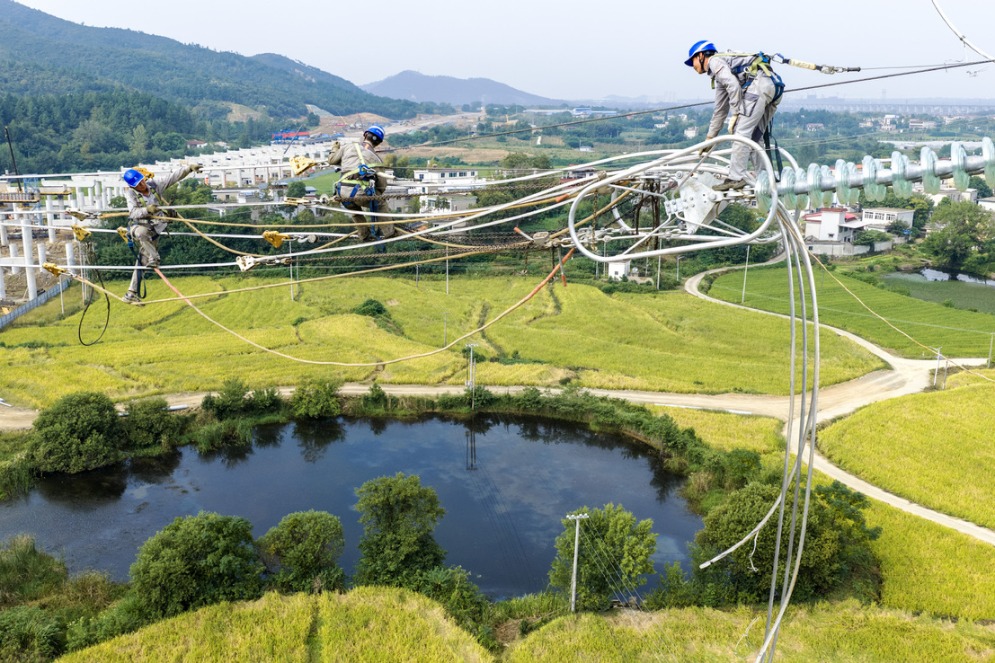Is a war in the Middle East imminent?

A critical moment to define regional future
By Xu Tingyao
The timing and intensity of this operation suggest it was no ordinary show of force. Ostensibly, Israel has positioned itself as the "bad cop" amid ongoing US–Iran nuclear negotiations, applying military pressure to force Iran to make concessions at the diplomatic table. On the eve of the strike, the United States ordered the evacuation of non-essential personnel from key Middle Eastern bases, signaling foreknowledge and contingency planning. Israeli sources have confirmed prior communication with the White House, indicating at least tacit coordination.
Yet, the scale and precision of the strike raise serious questions. If the intent were merely to pressure Iran over its nuclear program, attacking its nuclear facilities might have sufficed. But this operation went further — hitting missile bases and targeting senior government and military officials. Such escalation risks have already provoked an Iranian retaliation, potentially derailing nuclear talks altogether. Far from serving US diplomatic goals, Israel's actions seem to exploit the negotiations as a pretext for a deeper strategic ambition.
The deeper motive may lie in Israel's long-standing effort to dismantle Iran's regional power network — the so-called "Axis of Resistance". This loosely coordinated alliance, comprising groups such as Hezbollah in Lebanon, the Houthis in Yemen, and Shiite militias in Iraq and Syria, has long posed a strategic encirclement threat to Israel. Over recent years, Israel has invested heavily in undermining this axis through targeted airstrikes, cyberattacks and covert operations.
From surgical air raids on weapons caches in Syria to Mossad-led assassinations of Iranian operatives and Hezbollah commanders, Israel has worked to sever Iran's land corridor to Lebanon and diminish its influence across the Red Sea. Between 2020 and 2022, Israel allegedly breached Iranian missile and drone base networks, exposing significant vulnerabilities. With Hamas weakened, Hezbollah under strain, and the Houthis overstretched, the axis appears increasingly fractured — leaving Iran as the final pillar. In this light, the nuclear talks become a convenient pretext for a decisive blow.
There is also a domestic dimension. Since the October 7, 2023, Hamas assault on Israeli territory, Prime Minister Benjamin Netanyahu's government has faced mounting public discontent. Despite extensive military operations in Gaza, the failure to secure the full release of hostages, combined with rising Palestinian civilian casualties and accusations of war crimes, has drawn both internal and international condemnation. Anti-government protests have intensified, with growing calls for Netanyahu's resignation.
Under such pressure, Netanyahu needs to project strength — not just abroad, but also at home. A high-stakes military operation against Israel's archrival may serve to unite a fragmented society, deflect criticism, and reaffirm the government's narrative of "capable leadership". In moments of domestic turmoil, history has shown that external conflict can be a potent tool for consolidating internal authority.
Since the 1979 Iranian Revolution, Israel and Iran have been locked in a protracted shadow conflict, avoiding full-scale war but clashing repeatedly through proxies and covert means. During the 1982 Lebanon War, Iran's IRGC supported Hezbollah against Israeli forces. In Syria's civil war, the IRGC backed the Assad regime, while Israel responded with relentless airstrikes on Iranian positions.
This cold conflict flared into direct confrontation in April 2024, when Iran launched drones and missiles from its own territory — a historic first — prompting limited Israeli counterstrikes. Still, both sides exercised restraint. Israel views Iran's nuclear ambitions as an existential threat, and since 2010, has assassinated five Iranian nuclear scientists, including Mohsen Fakhrizadeh, regarded as the father of Iran's nuclear program. Cyberattacks, sabotage and drone strikes have become routine tools of Israel's preventive strategy.
But this latest operation marks a new chapter. No longer limited to deterrence, it carries the contours of a preemptive decapitation. If neither side can exercise restraint, the region could be careening toward a broader, more catastrophic war.
In the coming days, global powers — particularly the United States — will face a critical choice: to de-escalate, or to be pulled further into a conflict with no easy off-ramp. Whether Israel's strike proves to be a bargaining chip or a spark for escalation may well define the future of Middle East diplomacy.
Xu Tingyao, an assistant research fellow at the Institute for Studies on the Mediterranean Rim at Zhejiang International Studies University. The views don't necessarily reflect those of China Daily.
If you have a specific expertise, or would like to share your thought about our stories, then send us your writings at opinion@chinadaily.com.cn, and comment@chinadaily.com.cn.


































